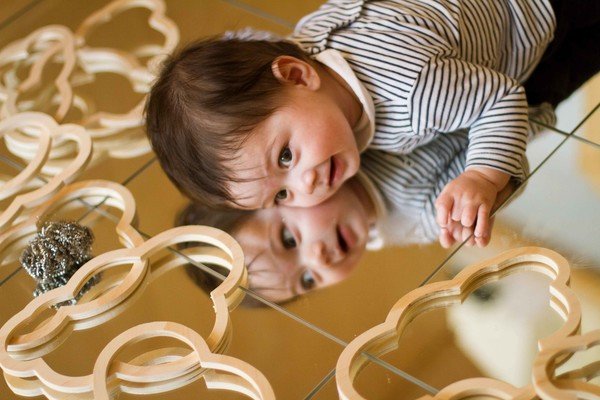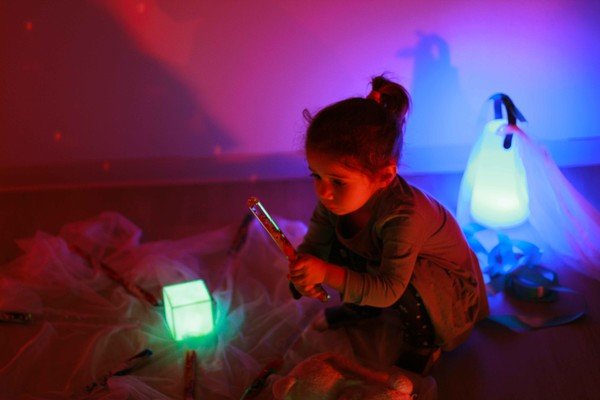- Our story
- Our values
-
Our daycare centres
- Our daycare centers : Contents
- Our educational project
- Our pedagogical project
- Our art & nature workshops
- Food quality
- Our teams of professionals
- The relationship with parents
- Virtual tour of a daycare centre
- Hygiene, well-being and safety in daycare centres
- A typical day in a daycare centre
- People&baby bilingual daycare centres
- Summer Camp
- Disability
- List of centres
- Our expertise
- Our organisation
- Our partners
- Our commitments
- people&baby international
The pedagogical project and early-learning activities
The pedagogical project follows on from the educational project: it gives concrete expression to the educational intentions.
The pedagogical project sets out the objectives given to the daycare centre teams to build their programme of activities and support the children and their families.
At people&baby, the "Sustainable Generation" educational project is based on 5 key themes that form the major themes of our day daycare centres' activity programmes.
Opening up to the world
Children express their creativity through artistic activities that allow them to express their own representation of the world, their imagination and their emotions at the time.
The workshops organised in our daycare centres encourage fine motor skills, promote experimentation and develop their senses.
By making music part of our daily lives, we provide children with an opportunity to discover new sounds, memorise a repertoire of songs, manipulate musical instruments and develop their sense of listening and rhythm. It's also a chance for children to discover other cultures.

Nature
Every day, the children in our daycare centres play in nature and with natural materials (sticks, stones, leaves, etc.). They learn by experiencing new sensations as they manipulate different materials. They discover flora and fauna and learn how to preserve them.
Nature tells the story of life: the origin of the world, where food comes from, the needs of the earth, the cycle of the seasons, etc. By looking after a plant or an insect, children learn to be patient and take responsibility for the care of a living being.

Harmony through beauty
The environment of our daycare centres is designed to amaze children. We make sure that the spaces are aesthetically pleasing and that the atmosphere (lighting, choice of music) and equipment are of a high quality. Visual stimuli encourage children to develop their sensitivity, curiosity and intelligence.
The reception halls are designed and decorated each month to highlight the children's creative process and the educational dynamic. These temporary exhibitions encourage astonishment and curiosity, and appeal to everyone's sensibilities. Parents take the time to look at and comment on the month's activities with their child.

Communication
We pay close attention to the various forms of communication young children use (verbal and non-verbal).
Convinced of the importance for children to be immersed in a rich and varied world of language, we sing and listen to music from all over the world. We also enrich and diversify their vocabulary through stories, songs, games and everyday life in the daycare centre.
In addition, to help children learn about different ways of communicating, we provide them with images, photos and written material (books, posters, cards, etc.) in the main room. At the same time, we use gestures and words to help children express themselves at an age when they don't have the words. This reduces frustration and encourages the child to communicate.

Emotional relaxation
In an atmosphere conducive to relaxation, we offer children the chance to relax and express their emotions.
Many daycare centres have a dedicated Zen room with subdued lighting, soft cushions, nature sounds and a perfume diffuser. These Zen rooms are real havens of peace where noise and stimuli are limited.
In daycare centres without a Zen room, a space dedicated to relaxation is set up in the main room: a carpet, a tent or a tree house.

- Our daycare centers : Contents
- Our educational project
- Our pedagogical project
- Our art & nature workshops
- Food quality
- Our teams of professionals
- The relationship with parents
- Virtual tour of a daycare centre
- Hygiene, well-being and safety in daycare centres
- A typical day in a daycare centre
- People&baby bilingual daycare centres
- Summer Camp
- Disability
- List of centres

